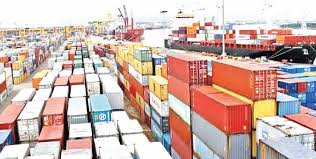Urgency Surrounding Lagos Port Overtime Cargo Clearance
Licensed import agents involved with cargo handling at the busy Lagos State ports have appealed for an extension of the strict two-week deadline imposed by the Nigeria Customs Service (NCS) to clear approximately 905 overdue cargo consignments. The move comes against the backdrop of looming penalties, including the potential forfeiture of uncleared goods to the government.
Background of the Overtime Cargo Ultimatum
The NCS recently issued a firm two-week ultimatum to importers and their representatives to expedite the clearance of cargoes that have overstayed at various terminals within Lagos ports. Failure to comply by the deadline would trigger governmental protocols for the disposal of these stagnant shipments. This ruling underscores the ongoing effort to unclog port congestion—a critical issue affecting Nigeria’s trade flow and economic activity.
Challenges Faced by Importers and Agents
Prominent voices in the logistics and custom agency sectors are highlighting that the window given for clearing these cargoes is, frankly, too short to be practical. The National Council of Managing Directors of Licensed Customs Agents expressed concerns about the losses importers might incur if hurried to clear their consignments without adequate time. Proposals include government-backed initiatives, such as requests to shipping companies for subsidies on demurrage fees—the charges levied for the prolonged stay of cargo at ports.
Meanwhile, representatives from the Association of Registered Freight Forwarders of Nigeria pointed to systemic issues like poor network connectivity at the terminals, which further slow the payment and clearance processes. Terminal operators also face financial strain from fixed costs, prompting calls for reforms that balance rent reduction with measures to ease operational expenses.
Financial Constraints Loom Large
Another layer to this complex problem is the financial muscle—or lack thereof—on the part of some importers. The National Association of Government Approved Freight Forwarders noted that many businesses simply cannot muster the funds needed to clear their shipments promptly, suggesting extensions potentially up to a year. This would afford importers a window to secure financing and eventually process their cargo without forfeiture threats.
Procedural Framework for Handling Overtime Cargo
The NCS’s stance on cargo clearance enforcement is that cargoes left unattended follow a set disposal process: initially given 30 days for clearance, items are then progressively transferred to zonal offices and round up at the headquarters. If importers still fail to act, legal proceedings may result in cargo condemnation and public notices inviting final clearance attempts.
| Step | Δράση | Timeframe |
|---|---|---|
| 1 | Initial Clearance Period | 30 days |
| 2 | Move cargo to zonal office | Post initial period |
| 3 | Transfer to headquarters for pending cargo | Following zonal office stay |
| 4 | Court condemnation & public notice | After prolonged failure to clear |
Επιπτώσεις για τον τομέα της εφοδιαστικής
Uncleared cargoes are a thorn in the side for Nigeria’s ports, affecting operational efficiency and overall logistics throughput. Congestion leads to increased demurrage fees, delays in freight movements, and strain on supply chain reliability. The call for an extended clearance period underscores a need to harmonize regulatory requirements with practical challenges importers face on the ground, including payment system inefficiencies and financial limitations.
Πλατφόρμες όπως GetTransport.com can play a vital role here, offering versatile and cost-effective logistics solutions to transport bulky items, manage cargo deliveries, and conduct international shipments. Whether moving office equipment, household goods, or large freight, such services can ease the burden for cargo owners by streamlining shipping and delivery through a trusted global network, helping avoid the bottlenecks that sometimes plague ports like Lagos.
The Bigger Picture and Personal Experience Insights
While official statements and agent feedback clarify many aspects of this cargo clearance predicament, nothing beats firsthand experience when navigating such logistical challenges. Delays at ports, the costs of demurrage, and intricacies of customs procedures can bewilder even seasoned players. Importers and freight forwarders benefit immensely from platforms that provide transparency, affordability, and choice, allowing them to vet multiple transport options with clear pricing.
GetTransport.com exemplifies this principle by making global cargo shipments accessible at competitive prices while accommodating varied needs—from courier parcels to palletized bulk shipments. Such convenience empowers decision-makers to reduce unnecessary expenses and minimize the risk of cargo abandonment. Book now with GetTransport.com to secure optimal transport solutions tailored to your freight demands.
Forecast and Closing Thoughts
Although the extension request is primarily a localized matter at Lagos ports, its effects ripple outward into global logistics channels. Efficient clearance and turnover at major shipping hubs maintain the momentum of international freight and supply chains. Platforms like GetTransport.com remain vigilant to regulatory and operational shifts worldwide, continuously evolving to meet dynamic freight forwarding and haulage requirements.
Ξεκινήστε να σχεδιάζετε την επόμενη παράδοσή σας και εξασφαλίστε το φορτίο σας με GetTransport.com.
Περίληψη
In summary, the tension between the Nigeria Customs Service’s regulation of cargo clearance timelines and importers’ practical challenges reveals a complex landscape impacting Nigerian ports’ logistics efficiency. Calls for deadline extensions highlight financial constraints, operational bottlenecks, and infrastructural shortcomings at the ports that contribute to prolonged cargo stays. Clearing this backlog is not merely a matter of enforcement but balancing policy with the realities of shipping, payment infrastructure, and freight forwarding dynamics.
The evolving situation underscores the importance of flexible, reliable logistical support capable of adapting to such nuances. Through services like GetTransport.com, businesses gain access to affordable, dependable cargo transport options that ease the burden of moving hefty shipments, managing distribution, and ensuring timely delivery. This synergy of regulation, commerce, and logistics technology fosters smoother cargo flow and supports the broader global supply chain ecosystem.

 Νιγηριανοί Εισαγωγικοί Πράκτορες Καλούν για Επέκταση της Προθεσμίας Εκκαθάρισης Φορτίου στο Λιμάνι του Λάγκος εν μέσω Προκλήσεων">
Νιγηριανοί Εισαγωγικοί Πράκτορες Καλούν για Επέκταση της Προθεσμίας Εκκαθάρισης Φορτίου στο Λιμάνι του Λάγκος εν μέσω Προκλήσεων">